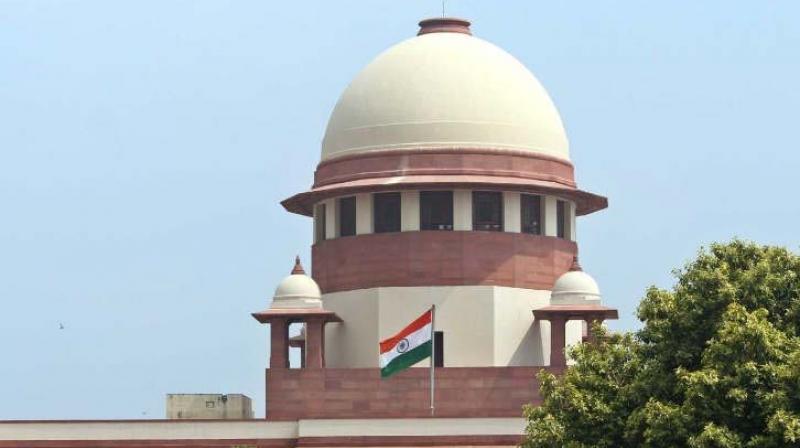Kerala favours women's entry at Sabarimala Ayyappa temple
Further Sabarimala is a temple for all Hindus and, therefore, Article 26(b) (giving such protection) is not attracted.

New Delhi: Even as the Pinarayi government in Kerala favoured entry of women of all ages for worship into the Sabarimala Ayyappa temple, the Supreme Court on Wednesday reserved verdict on a batch of petitions challenging the ban on entry of women between the age of 10 and 50.
A five-judge Constitution Bench comprising Chief Justice Dipak Misra and Justices Rohinton Nariman, A.M. Khanwilkar, D.Y. Chandrachud and Ms. Indu Malhotra reserved verdict at the conclusion of marathon arguments on behalf of the petitioners and those who oppose such entry.
Senior counsel for Kerala Jaideep Gupta in his concluding arguments made it clear that the state government was in favour of allowing the entry of women of all ages to Sabarimala Ayyappa temple without any restriction. At present female devotees in the age group of 10 to 50 are not allowed entry to the temple.
Adv. Gupta said the government is not against any sort of discrimination towards women or any section of the public in any way. All persons are equally entitled to freedom of conscience and the Constitution gives right to worship to everyone equally. Hence it is not fair to deny a section of women from entering Sabarimala temple. The counsel pointed out that religious practices and customs had changed during the last 50 years and Constitution must also be a progressive document in favour of equal rights for men and women.
It was argued on behalf of the petitioners that such restriction is contrary to the letter and spirit of the Constitution.
The Supreme Court on Wednesday reserved verdict on a batch of petitions challenging the ban on entry of women between the age of 10 and 50. It was argued on behalf of the petitioners that such restriction is contrary to the letter and spirit of the Constitution. Further Sabarimala is a temple for all Hindus and, therefore, Article 26(b) (giving such protection) is not attracted.
At the outset the CJI made it clear that the court will adjudicate on the issue purely as a constitutional question, viz such restriction violates the very core of Articles 14, 15 and 17 and not protected by ‘morality’ as used in Articles 25 and 26 of the Constitution?
Earlier senior counsel K. Ramamoorthy, amicus curiae in the case said it is a unique Ayyappa temple following a religious practice acted upon by devotees for a long term is protected under Article 25 (1) on the strength of the religious practice on the religious belief from time immemorial.

